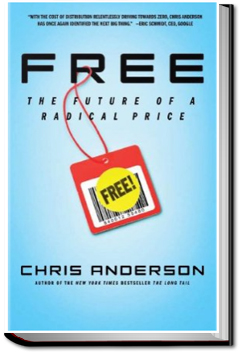

When I was a kid, hunger was one of the main problems of poverty in America. Today, it's obesity. Something dramatic has changed in the world of agriculture in the past four decades— we got much better at growing food. A technology-driven revolution turned a scarce commodity into an abundant one. And in that story lie clues to what can happen when any major resource shifts from scarcity to abundance.
There are only five major inputs to a crop: sun, air, water, land (nutrients), and labor. Sun and air are free, and if the crop is grown in an area with plenty of rainfall, water can be free, too. The remaining inputs—primarily labor, land, and fertilizer—are very much not free, and they account for most of the price of crops.
In the nineteenth century, the Industrial Revolution mechanized agriculture, radically lowering the cost of labor and increasing crop yield. But it was the "Green Revolution" of the 1960s that really transformed the economics of food by making farming so efficient that fewer people had to do it anymore. The secret of this second revolution was chemistry.
For most of human history manure has determined how much food we had. Agricultural yield was limited by the availability of fertilizer, and that largely came from animal (and sometimes human) waste. If a farm wanted to support both animals and crops in a synergistic nutrient cycle, it had to split its land
Get ALL YOU CAN BOOKS absolutely FREE for 30 days. Download our FREE app and enjoy unlimited downloads of our entire library with no restrictions.
Have immediate access and unlimited downloads to over 200,000 books, courses, podcasts, and more with no restrictions.
Everything you download during your trial is yours to keep and enjoy for free, even if you cancel during the trial. Cancel Anytime. No risk. No obligations.
For just $24.99 per month, you can continue to have unlimited access to our entire library. To put that into perspective, most other services charge the same amount for just one book!

As avid readers, we understand the joy of immersing ourselves in a captivating story or getting lost in the pages of a good book. That's why we founded All You Can Books back in 2010, to create a platform where people can access an extensive library of quality content and discover new favorites.
Since our founding days, we’ve continuously added to our vast library and currently have over 200,000 titles, including ebooks, audiobooks, language learning courses, podcasts, bestseller summaries, travel books, and more! Our goal at All You Can Books is to ensure we have something for everyone.
Join our community of book lovers and explore the world of literature and beyond!
It turns out 'free' is not a new idea: think radio and television in the days of antennas. M